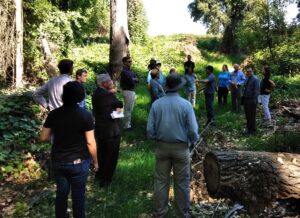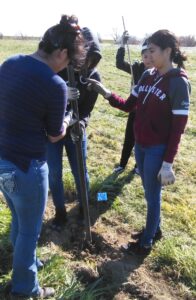Education and Outreach

The Delta Conservancy plays an important role in sharing information with communities, agencies, nonprofit organizations, and the public.
We collaborate with a wide range of groups to highlight the Delta’s ecological, economic, and cultural significance; share best available science; and promote environmental stewardship. Our team participates in workshops, community presentations, classroom visits, student field trips, and hands-on activities to provide information on topics such as watershed science and ecosystem health. Additionally, we support events like community cleanups that help beautify the Delta and Suisun Marsh.
Current Projects
Clean Vessel Act Program
To aid in the effort of environmental stewardship among boaters, we launched our Clean Vessel Act Program in 2025. This initiative focuses on educating recreational boaters about proper vessel sewage disposal, the importance of using pumpout facilities, and monitoring pumpout and dump stations across Northern California to ensure their accessibility and functionality.
Delta Waterway Cleanups
The Conservancy is a partner in annual cleanups where volunteers can actively participate by cleaning up trash and preventing it from spreading in waterways. These events bring awareness of good environmental stewardship, best practices in conservation, and water quality.
Supported Projects

Student and Landowner Education and Watershed Stewardship (SLEWS)
Our team participates in the Center for Land-Based Learning’s Student and Landowner Education and Watershed Stewardship (SLEWS) program. Students combine in-class lessons with three to five SLEWS Field Days to build their knowledge, skills, and personal connection to the land. Each high school class of approximately 30 students is matched with a habitat project where they plant native trees and shrubs, build irrigation systems, and participate in ecological field studies. With the help of mentors from universities and professions who have relevant ecological knowledge, students see the effects of their work through multiple visits to their adopted project. These integrated learning experiences combine team-building, science learning, habitat restoration, and reflection activities with outdoor exploration.

